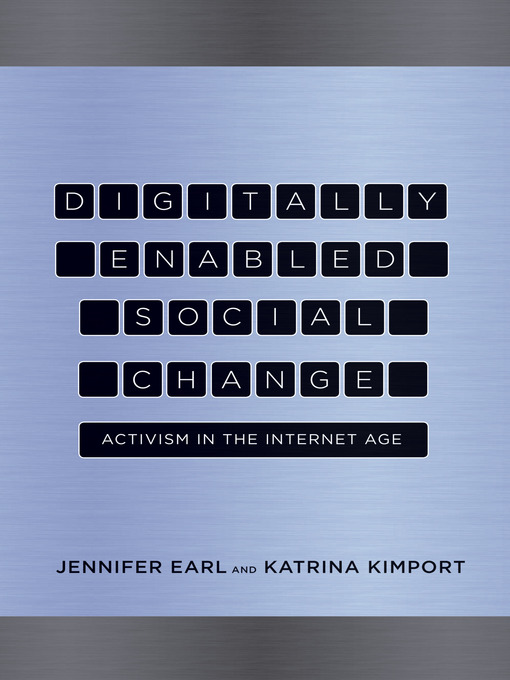Much attention has been paid in recent years to the emergence of "Internet activism," but scholars and pundits disagree about whether online political activity is different in kind from more traditional forms of activism. Does the global reach and blazing speed of the Internet affect the essential character or dynamics of online political protest? In Digitally Enabled Social Change, Jennifer Earl and Katrina Kimport examine key characteristics of web activism and investigate their impacts on organizing and participation.Earl and Kimport argue that the web offers two key affordances relevant to activism: sharply reduced costs for creating, organizing, and participating in protest; and the decreased need for activists to be physically together in order to act together. Drawing on evidence from samples of online petitions, boycotts, and letter-writing and e-mailing campaigns, Earl and Kimport show that the more these affordances are leveraged, the more transformative the changes to organizing and participating in protest.
- New eBooks
- Fantasy Fiction
- Mysteries
- Graphic Novels for Adults and Teens
- YALSA Great Graphic Novels for Teens
- New eBooks for Teens
- Comics and Graphic Books for High School Students
- Always Available Teen eBooks
- 100 Most Popular Teen Fiction eBooks 2025
- 100 Most Popular Teen Nonfiction eBooks 2025
- See all ebooks collections
- New Audiobooks for Teens
- Top 100 Teen Fiction Audiobooks 2024
- Fantasy
- 100 Most Popular Teen Fiction Audiobooks 2025
- See all audiobooks collections
